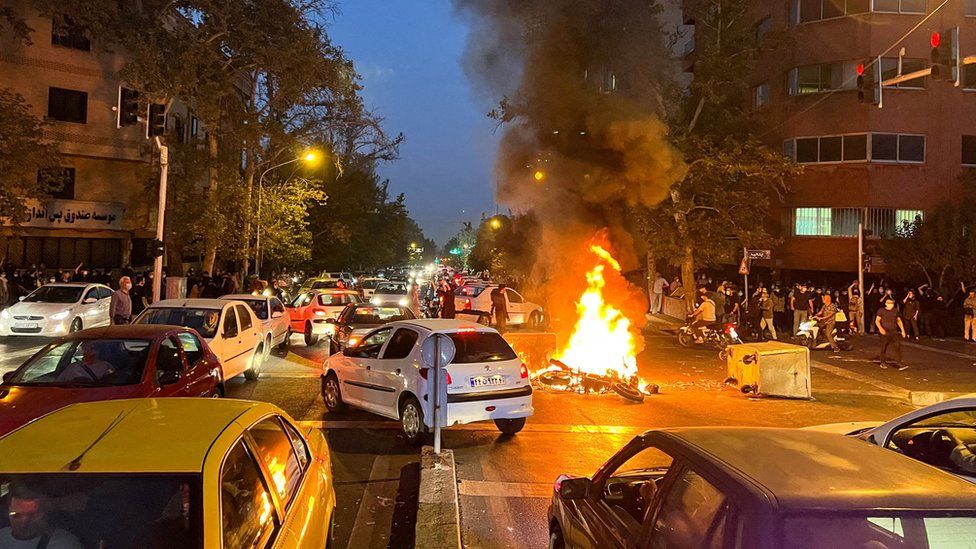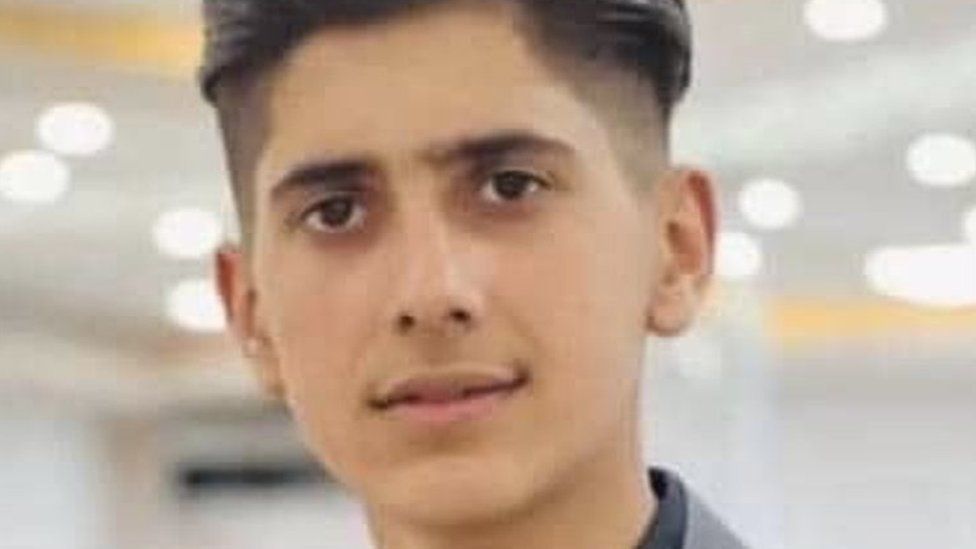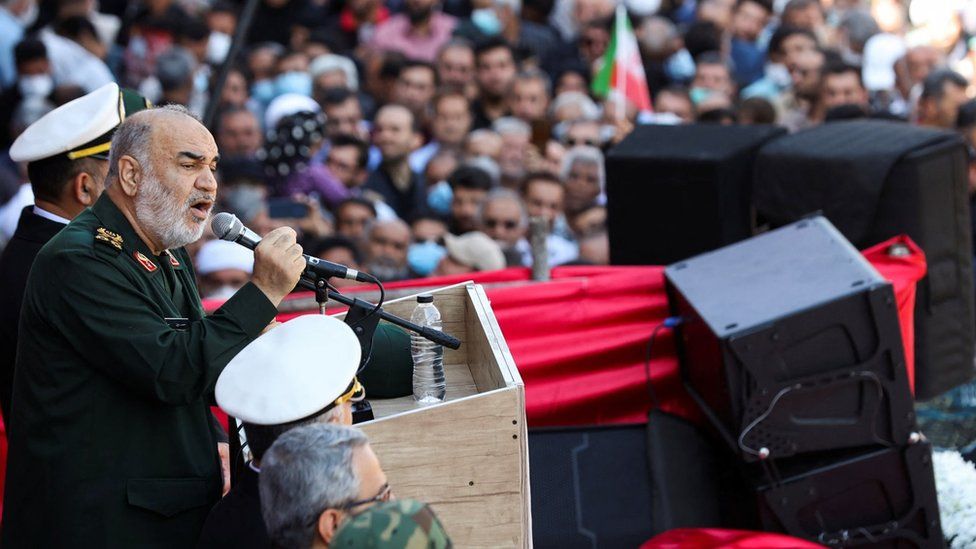A prosecutor announces plans for mass trials, as two teenage protesters are buried in the east.
 Image source, Reuters
Image source, ReutersAbout 1,000 people in Tehran have been charged in connection with the anti-government protests that have engulfed Iran, the city’s chief prosecutor says.
Suspects accused of “acts of sabotage”, including murdering security guards and arson, face open mass trials this week.
Authorities have not said how many have been arrested nationwide, but rights activists have put the total at 14,000.
The announcement came as two teenage protesters allegedly killed by security forces were buried in north-east Iran.
Kumar Daroftateh, 16, was shot at close range at a demonstration in the city of Piranshahr and died in hospital on Sunday night, according to Kurdish human rights group Hengaw.
At his funeral on Monday, mourners shouted slogans against the government.

Image source, Kurdistan Human Rights Network
To the south, in the city of Sanandaj, another crowd gathered at the grave of Sarina Saedi, who was also 16.
The BBC’s Kasra Naji says witnesses saw her fall to the ground during a protest a few days ago after she was hit by birdshot fired by security forces.
However, our correspondent adds, Sarina’s father was forced to announce on TV that her death was the result of a suicide in order to absolve security forces of blame.
Iran’s Human Rights Activists News Agency (HRANA) reports that 284 people, including 45 children, have been killed by security forces in the crackdown on protests, which erupted after the death in police custody of a woman accused of wearing her hijab “improperly”.
Thirty-five security personnel have also been killed, it says.
Authorities have portrayed the protests as “riots” fomented by Iran’s foreign enemies and warned that those who take part will face severe punishment.
Iran’s judiciary chief, Gholamhossein Mohseni Ejei, vowed on Monday that judges would “deal with the cases of the recent riots with accuracy and speed”.
“Those who intend to confront and subvert the regime are dependent on foreigners and will be punished according to legal standards,” the Associated Press cited him as saying.
On Saturday, a Revolutionary Court in Tehran began trying five people on charges that carry the death penalty, state news agency Irna reported.
They included one man accused of “corruption on Earth” for allegedly hitting and killing a police officer with his car, it said. Another man who allegedly attacked police with a knife and set a government building on fire faced the charge of “enmity against God”, it added.

Image source, WANA NEWS AGENCY VIA REUTERS
The protests have continued despite the threat of prosecution and an ultimatum from the commander of the Islamic Revolution Guard Corps (IRGC), a powerful military force tasked with defending the country’s Islamic system.
“Today is the last day of the riots,” Maj-Gen Hossein Salami declared in a speech on Saturday. “Do not come to the streets anymore.”
Defiant students were filmed protesting at more than a dozen universities across the country the following day.
Video appeared to show armed personnel in plainclothes attacking a crowd with tear gas and sticks at a branch of Azad University in Tehran.
Iran’s plainclothes officers and Basij forces attack students protestin at Azad University in north Tehran, resulting in violent clashes.
One of the Basij forces brandishes and discharges a gun.#مهسا_امینی#MahsaAminipic.twitter.com/WiycAd1C72
— Shayan Sardarizadeh (@Shayan86)

The unrest was triggered by the death on 16 September of Mahsa Amini, a 22-year-old woman who fell into a coma after being arrested by morality police in Tehran for allegedly violating Iran’s strict rules requiring women to cover their hair with a hijab, or headscarf.
There were reports that officers beat her head with a baton and banged it against the side of a vehicle. The police denied mistreating her and said she suffered a heart attack.
The first protests took place after Ms Amini’s funeral, when women ripped off their headscarves in solidarity.
They have since evolved into one of the most serious challenges to the clerical establishment since the 1979 Islamic Revolution.